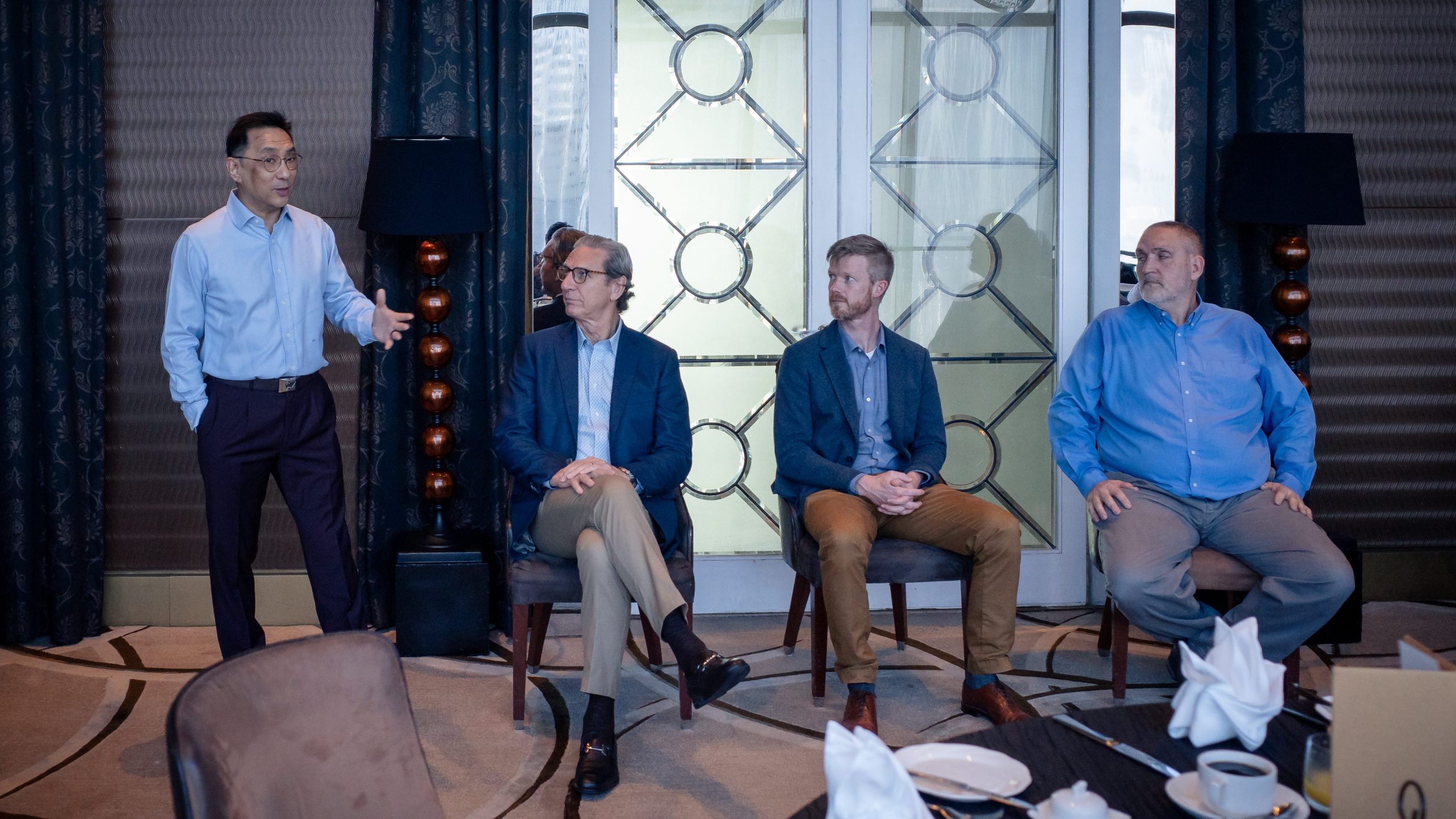In a breakfast hosted by new APC member Carl Thong, the Eagle Venture Fund shares perspectives behind their work in ESG– when more good is being done, more returns can also be made.
BY YU KHING POH

In a breakfast discussion hosted by new APC member Carl Thong, members heard from Wesley Lyons, Raimund Buhr, and Wade Myers from Eagle Venture Fund on their perspectives behind their focus on the “social” part of ESG, and how they champion “significant returns” with “significant impact”.
They shared how older models of social entrepreneurship had inherent tensions. Creating better-quality products meant lowering profit margins, or giving free products to under-privileged communities; this in turn disempowered local entrepreneurs or craftsmen.
Eagle Venture is focused on investing in business models that create long-term sustainable ecosystems and social impact. The key was to align win-win outcomes for both the social enterprise and the communities they are trying to impact.
For example, one company Eagle Venture invested in, BaroSkills, provides training in software development. They seek to address both the demand and supply sides of the ecosystem. In traditional education models, the learner pays course fees. However, learners from less privileged backgrounds typically cannot afford course fees, and might not know how to look for employment after graduation.
Instead, while learners are being trained, BaroSkills concurrently looks for companies that want to hire developers. Companies will pay a recruiting fee for the placement of learners from BaroSkills’ programme once they graduate—helping to provide learners with employment.
The recruiting fee from companies form the main revenue source for BaroSkills. This means that when more learners graduate and get employed, BaroSkills earns more revenue. The alignment in win-win outcomes mean that when more good is being done, more profit can be made as well.
With the goal of 20% returns annually, Eagle Venture has exceeded this goal for the past six years—showing that it is possible in venture capital to pursue passion for social impact with sustainable business models. Being passionate about social impact is not enough as the champion might not have business skills, or the communities being helped might not be ready or able to transition so quickly. Eagle Venture has developed a management and entrepreneurial skills checklist to evaluate the business founders as well.

Responding to questions on assessing social impact, they shared how it is very daunting to measure the “social” part of ESG. Eagle Venture tries to simplify this by saying “Impact has a name”, so the measure is “Lives Transformed”. That is, how many people’s lives have been transformed, and thus how many actual people can they identify.
So far they have invested in 28 entrepreneurs in 3 areas: human trafficking; healthcare; and economic opportunities. At the end of the day, profit is like breathing—it’s necessary for sustainability, but it is terrible to have profit as the main reason for living!
